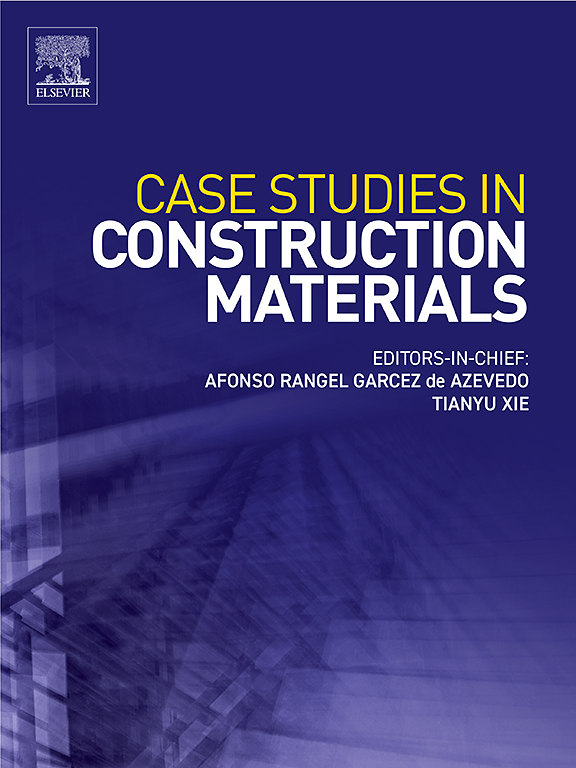通过详细的粒度分类减轻RAP的可变性:在高RAP含量沥青混合料中的应用
IF 6.6
2区 工程技术
Q1 CONSTRUCTION & BUILDING TECHNOLOGY
引用次数: 0
摘要
沥青混合料中高再生沥青路面(RAP)含量具有可观的经济效益和环境效益。然而,RAP可变性导致的性能不稳定阻碍了其应用。本研究研究了一种改进的RAP粒度分类方法,该方法将分级级别从2级提高到4级,旨在减轻高RAP含量混合物的可变性并提高其性能。实验室生产的RAP旨在模拟现场RAP性能,控制沥青含量、沥青性能和级配的变化。RAP含量分别为45 %、60 %和100 %的再生沥青混合料,通过浸没马歇尔(保留稳定性)和冻融劈裂试验(抗拉强度比)评估其水分敏感性,通过半圆弯曲试验(断裂能)评估其低温抗裂性,通过车辙试验(动态稳定性)评估其高温稳定性。结果表明,RAP级配变异性主要影响水稳定性,而沥青含量变异性对低温性能影响很大。改进的分类方法显著降低了可变性,增强了机械性能,并稳定了整体性能。这种方法为提高高RAP含量混合物的质量和推进可持续路面施工实践提供了一种实用的解决方案。本文章由计算机程序翻译,如有差异,请以英文原文为准。
Mitigating RAP variability through detailed particle size classification: Applications in high RAP content asphalt mixtures
High recycled asphalt pavement (RAP) content in asphalt mixtures provides substantial economic and environmental benefits. However, its application is hindered by performance instability caused by RAP variability. This study investigates a refined RAP particle size classification method that increases the grading levels from two to four, aiming to mitigate variability and enhance the performance of high RAP content mixtures. Laboratory-produced RAP was designed to simulate in-situ RAP properties with controlled variability in asphalt content, asphalt properties, and gradation. Recycled asphalt mixtures with RAP contents of 45 %, 60 %, and 100 % were evaluated for moisture sensitivity using immersion Marshall (retained stability) and freeze-thaw splitting tests (tensile strength ratio), low-temperature cracking resistance using semi-circular bending tests (fracture energy), and high-temperature stability using rutting tests (dynamic stability). Results demonstrate that RAP gradation variability predominantly impacts water stability, while asphalt content variability critically influences low-temperature performance. The refined classification method significantly reduced variability, enhanced mechanical properties, and stabilized overall performance. This approach offers a practical solution for improving the quality of high RAP content mixtures and advancing sustainable pavement construction practices.
求助全文
通过发布文献求助,成功后即可免费获取论文全文。
去求助
来源期刊

Case Studies in Construction Materials
Multiple-
CiteScore
7.60
自引率
19.40%
发文量
842
审稿时长
63 days
期刊介绍:
Case Studies in Construction Materials provides a forum for the rapid publication of short, structured Case Studies on construction materials. In addition, the journal also publishes related Short Communications, Full length research article and Comprehensive review papers (by invitation).
The journal will provide an essential compendium of case studies for practicing engineers, designers, researchers and other practitioners who are interested in all aspects construction materials. The journal will publish new and novel case studies, but will also provide a forum for the publication of high quality descriptions of classic construction material problems and solutions.
 求助内容:
求助内容: 应助结果提醒方式:
应助结果提醒方式:


